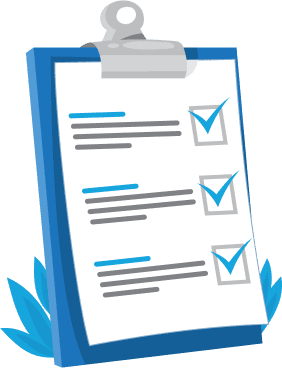
1Resume Writing Tips
Your resume is often the first impression you make with potential employers. Here’s how to make sure it stands out:
Key Tips
- Tailor Each Resume: Customize your resume for each job you apply to, focusing on the skills and experience most relevant to the position.
- Use Action Words: Start each bullet point with strong verbs like "developed," "led," "implemented", and "designed" to demonstrate your impact.
- Quantify Achievements: Whenever possible, include numbers to show your impact. For example, "Increased system efficiency by 25%" or "Led a team of 5 developers."
- Highlight Technical Skills: Make sure to list programming languages, software, or tools that are relevant to the position you're applying for.
- Keep It Concise: Aim for a one-page resume, especially if you’re early in your career, focusing on key accomplishments.
Targeted Resources
- Indeed’s Resume Writing Guide for detailed tips and templates.
- Zety Resume Builder for customizable resume templates that match industry standards.

2Interview Preparation Tips
Your interview is where you can showcase not only your technical skills but also your fit with the company’s culture. Here's how to prepare:
Key Tips
- Research the Company: Understand their products, culture, and challenges. Tailor your responses to show how you can contribute to their specific goals
- Practice Common Tech Questions: Be ready to discuss algorithms, data structures, or system design, depending on the job level. You may also need to do a coding test.
- Use the STAR Method: For behavioral questions, structure your answers using the Situation, Task, Action, and Result framework to clearly demonstrate how you've handled challenges.
- Prepare Questions to Ask: Always have questions prepared to ask your interviewer about the company’s work environment, opportunities for growth, and team culture.
Targeted Resources
- LeetCode for practicing coding challenges
- for video-based mock interviews and tips on behavioral questions

3Personal Branding
In today’s digital age, personal branding is key to standing out in the tech industry. Your brand is how others perceive you both online and offline.
Key Tips
- Create a Strong Online Presence: Build a LinkedIn profile that showcases your skills, projects, and certifications. Consider starting a blog or sharing tech insights on Twitter to showcase your expertise.
- Develop a Personal Elevator Pitch: Be ready to introduce yourself at networking events or in interviews with a quick, engaging summary of who you are and what you do.
- Contribute to Open Source Projects: Contribute to Open Source Projects: Showcasing your skills through contributions to projects on platforms like GitHub can enhance your credibility
- Highlight Technical Skills: Make sure to list programming languages, software, or tools that are relevant to the position you're applying for.
- Be Consistent: Ensure your resume, online profiles, and personal website (if you have one) all tell a cohesive story about your tech journey.
Targeted Resources
- LinkedIn Profile Optimization for tips on enhancing your profile.
- GitHub for showcasing your coding projects and contributions to open-source communities.

4Networking
Networking is crucial in tech. It can lead to job opportunities, mentorships, and collaborations. Here’s how to build meaningful connections:
Key Tips
- Join Tech Communities: Participate in communities like Women Who Code, Black Girls CODE, or TechLadies. Engage in conversations, attend meetups, and build relationships.
- Attend Tech Conferences: Whether virtual or in-person, events like Grace Hopper Celebration or local tech meetups are great places to meet people in the industry.
- Utilize LinkedIn: Reach out to professionals in your field with personalized messages. Don't be afraid to ask for informational interviews to learn more about their career paths.
- Follow Up: After meeting someone, follow up with a message thanking them for their time. Stay in touch periodically to keep the connection alive.
Targeted Resources
- Meetup for finding local tech events.
- Women Who Code to co nnect with women in the tech industry.

5Salary Negotiation
Once you've landed the offer, salary negotiation is the next important step. Here's how to ensure you're getting what you deserve
Targeted Resources
- Glassdoor Salary Insights for salary comparisons across roles and companies.
- Payscale for comprehensive salary research and negotiation tips.
Key Tips
- Do Your Research: Use sites like Glassdoor or Payscale to understand what others in similar roles are earning, especially within your location and level of experience.
- Know Your Value: Highlight your unique skills, certifications, and achievements during negotiations. Mention how your expertise can add value to the company.
- Be Confident, But Polite: Approach negotiations respectfully but assertively. Make your case clearly and be willing to discuss compromises beyond salary, like benefits or remote work opportunities.
- Practice Negotiation: Practice negotiating with a mentor or colleague to become more comfortable with the process.

